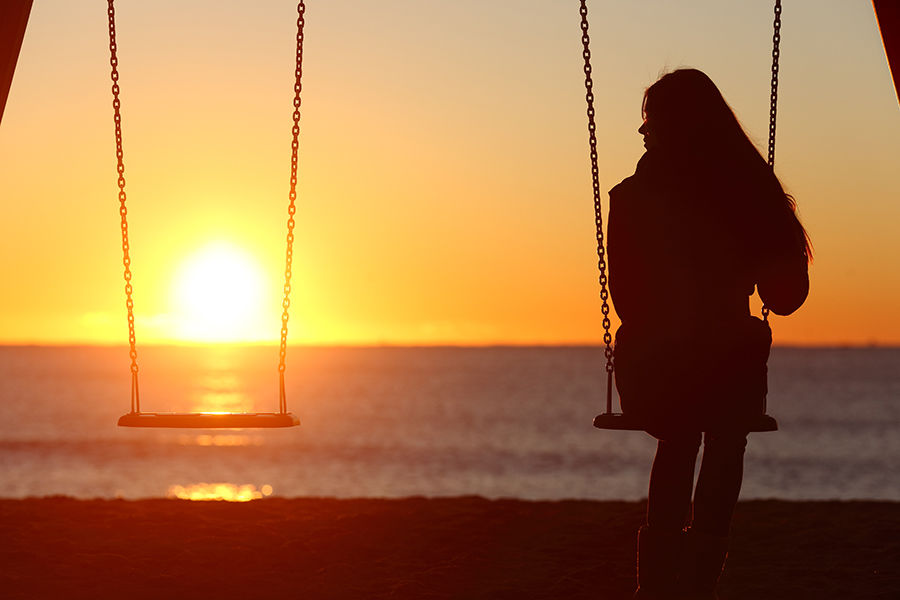Valentine’s Day turned into a nightmare for Bob and Laura Altieri in 2014. Laura was admitted to the hospital and diagnosed with stage IV lung cancer. Inoperable. Incurable. “We fought the good fight, but five months later she passed,” said Bob, now a widower after 56 years of marriage.
Bob started a grief journal two days before Laura died, and has written to her every day since as a way of staying in touch, expressing his love. “I started looking for ways to ease the pain,” he recalled. He tried support groups and found himself helping others with their pain instead.
“Looking back, that may have been why I was there in the first place,” Bob said. A Beginning Experience weekend helped and ultimately he became a program facilitator. His evenings and weekends are now dedicated to various groups where he helps others deal with their grief. “These things are what I feel God had in mind for me my whole life and has been preparing me for it,” he said.
Last summer, Bob, a retired LAPD officer, participated in an annual event held at the Cathedral of Our Lady of the Angels by the Separated, Divorced and Widowed Ministry (SDW) directed by Joan Vienna, director of the Office of Family Life for the Archdiocese of Los Angeles. He gave a talk, sharing his immense pain and loss, but also discussed things he does to restore purpose to his life. He will speak again at this year's event.
“If you haven’t been through this, it’s hard to understand the heart-wrenching pain. You feel like the ‘we’ has gone away,” Bob said. He encourages people experiencing loss to come to this year’s cathedral event on Saturday, July 8.
“In a group like that, you’re with people that understand, that can empathize with what you’re going through,” he said “It’s nice to have someone that you can talk to about your loss or maybe somebody just to sit there and be there with you.”
The SDW event includes a cathedral tour, Mass celebrated by Father Patrick Hill, speakers, lunch and a grief workshop. This year’s workshop — “Making Grief Good” — is facilitated by Dr. Ross Porter, Ph.D., M.Div., executive director of Stillpoint Family Resources, director of faith formation at St. Mel Parish in Woodland Hills and a candidate for the permanent diaconate in the Archdiocese of Los Angeles.
“Historically, people have seen grief as something that is negative that needs to be avoided at all costs,” said Porter. “But grieving well can actually be a virtue, can actually be something that makes you better because it opens you up to love.”
His workshop will discuss the symptoms of grief, make distinctions between grief and depression and talk about myths about grief, such as grief being bad, unhealthy or indicating weakness. “These are myths that need to be flushed out and dispelled,” he said.
Porter stated that a plan is needed to work through grief. “It doesn’t happen accidentally, and it doesn’t happen in isolation; you need community to help you and it takes time,” he said. He describes grief as a journey involving reprocessing, re-engaging and telling stories. “It starts with accepting that your life has changed, that it’s not going to be the same again. So you’ve got to begin in reality, recognizing that what you’ve lost is lost,” said Porter.
“I think the main takeaway from this event is that grief is good because it enlarges our hearts, it makes us more loving people, it makes us more empathic people and it prepares us for heaven because we learn how to detach from the things and trust God more,” he added.
Loss may feel different if you are divorced or separated, noted Porter. “There’s an added layer of grief when a marriage fails, so you’re dealing with the grief of failure as well as the grief of loss, which is not the same thing,” he said.
Terri Lynn Doubet was surprised after 24 years of marriage that her husband wanted a divorce. He was having an affair. “I tried to find a support group because it was so devastating,” Doubet said. She found a group that “helped more than I would have ever realized they could have helped me,” she said.
“When somebody dies you have a way to say goodbye to them,” she said. Divorce doesn’t offer that kind of peaceful closure. “I was grieving,” she said. Her group helped her with denial, grief, loneliness and anger. “When other people are walking with you, it makes it much more bearable. It’s a grieving process,” Doubet explained.
She believes this event is important “because people there are going through the same thing you are, speakers will share their experiences and you might meet people that you could maybe meet with” or get resources.
“It’s hard to take the first step, but once you do you feel better because you feel that you’ve been able to share. It’s not all inside you and you realize, ‘Oh my gosh, I thought I was crazy and I’m not! These other people are feeling the same way I am.’ They’re sad or angry or whatever the feeling is. You know you’re not alone,” Doubet said.
“If you get a chance to share it, you feel better about it. It doesn’t change anything, but at least you know you’re not alone. That’s the biggie. That’s the main purpose,” said Bob.
For information on the July 8 event, call Julie Monell-Auzenne at (213) 637-7249 or email [email protected]. For online registration, go to www.store.la-archdiocese.org/making-grief-good.

